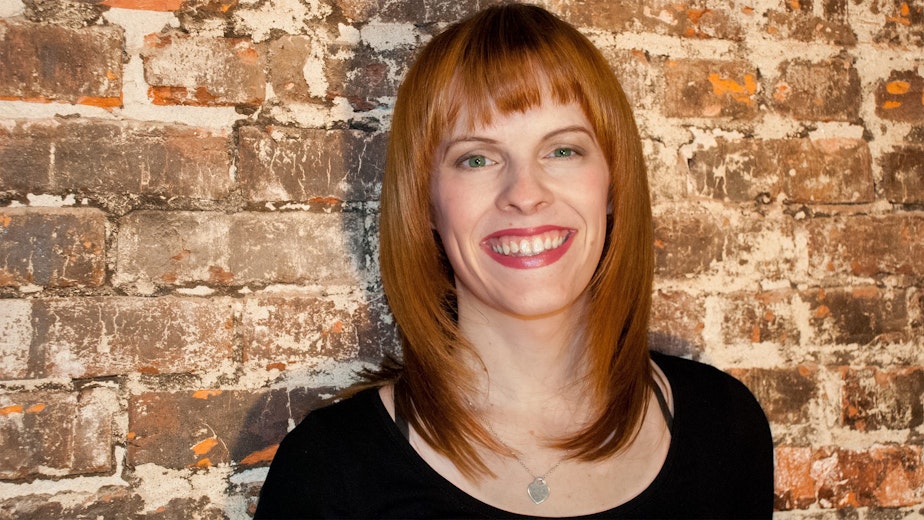So many trans issues to discuss, but we're stuck in the bathroom

Trans rights activist Danni Askini was at our station recently, flawless as always, despite being on a press interview marathon.
Then our host Bill Radke asked her, "Do you ever get sick of getting interviewed about differences, and minority status? I haven't ever talked to you about anything else once the microphones roll."
She laughed. Yes, she tires of it.
"I use identity to do my work, to do my activism and to create safety for my community," Askini said. "Identity is a component, we have to build community around that identity, but it also prevents people from seeing the other parts of me."
Like, she's an avid rock climber. And that she loves to bike ride. Or that she's traveled a lot and lived in other countries.
Sponsored
"I wish I was a rock climbing activist," she said. "That's a very Northwest way to think about it, but it's those things that often get dropped out when your identity becomes the focus of all conversations."
The exhaustion comes in part because Askini is one of few spokespeople for the trans community here in Seattle. She jokingly refers to herself as the 'Mayor of Trans Town.'
But the reason behind this is more serious.
Trans people have often been left behind in the campaign for LGBT rights, Askini said. The T's weren't often elevated to leadership positions in battles like the one for marriage equality. That means there are fewer leaders to take up the trans cause now.
"Even within the LGBT community, trans folks have often been at the back of the bus," Askini said.
Sponsored
"People always told us to wait our turn to have these conversations. And now that it is our turn, it's been kind of difficult to galvanize the same kind of support to build a multiplicity of trans leaders."
But there's another reason Askini is exhausted right now. There's so much more than the bathroom when it comes to trans issues.
"There are lots of other conversations we should be having about what it means to be a transgender person navigating a system in which we have two gender options and our state enforces those," she said.
"There are a lot of other conversations outside of where people go tinkle. It feels for me, in the crisis my community is facing, quite trite in some ways."
Askini wants to see conversations about unemployment in the trans community, homelessness and violence against transgender women of color. Last year, 24 transgender women were murdered Askini said. Twenty-three of them were transgender women of color.
Sponsored
There have been strides in the trans rights movement. The community has come a long way since Askini transitioned in the early 1990s.
"I didn't know a single trans person for almost seven years in my youth," she said. "If you can imagine going seven years being certain of something and then never having another example of that. Never meeting another person like you."
Today, Askini said, that doesn't happen. The Internet has allowed trans people all over the world to build communities and come together.
But the fight is far from over. The Orlando shooting is a reminder of that.
"It is both a wake up call and a reminder of how far we have to go," Askini said.
Sponsored
Pride has taken on a different meaning for many after the attack. And Askini wants Trans Pride to be a call to battle.
"I think Trans Pride has always been about resistance, that's the word that comes to mind for me. Celebration, resistance and mobilization," Askini said.
"It is about gun violence, it is about racism, it is about xenophobia, it is about ending religious extremism in all of its forms, it is about toxic masculinity, it is about homophobia, it is about transphobia. All of those things made Orlando possible and I hope we can hold onto that complexity as we go forward."
Five years from now, her hope is that we've moved beyond bathrooms and we're talking about the safe and supportive environment in which transgender people are able to live.

